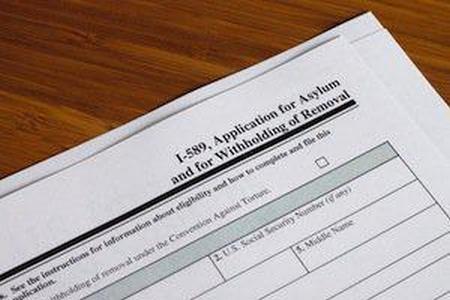Recent Blog Posts
Divorcing Parents Often Wait until after the Holidays to File
 Holidays are a time for family and fond memories, which might give at least a partial explanation as to why many couples wait until after the holidays to announce a divorce. Indeed, studies suggest that the majority of couples who are planning to divorce end up adopting a peacekeeping arrangement and, instead of moving forward with an impending divorce, they behave as though everything is normal. Experts call it the calm before the storm.
Holidays are a time for family and fond memories, which might give at least a partial explanation as to why many couples wait until after the holidays to announce a divorce. Indeed, studies suggest that the majority of couples who are planning to divorce end up adopting a peacekeeping arrangement and, instead of moving forward with an impending divorce, they behave as though everything is normal. Experts call it the calm before the storm.
“Divorce Month”
In 2012, an analysis of divorce filings across the United States was done. The conclusion was that divorces typically spike in January, right after the holidays, and then hit a peak in late March. This led to the researchers declaring March “Divorce Month,” which continues to remain the month in which most U.S. divorces are filed. To understand this trend, experts have considered a number of possible factors, namely cost.
Cost Considered a Factor
U Visas: Helping Crime Victims
 Many people do not wind up in the United States of their own volition. Rather, they are brought here by traffickers, or come into the country to marry someone who them abuses them. If a foreign national is brought to the United States as a result of a crime, or becomes a crime victim while living in the country, he or she may have immigration recourse that can separate him or her from their abuser.
Many people do not wind up in the United States of their own volition. Rather, they are brought here by traffickers, or come into the country to marry someone who them abuses them. If a foreign national is brought to the United States as a result of a crime, or becomes a crime victim while living in the country, he or she may have immigration recourse that can separate him or her from their abuser.
U Visas
The U visa is perhaps the most common way that victims of crimes are able to stay in the United States after their experiences. U visas are awarded to victims who have been mentally or physically abused, and have been able to aid law enforcement in the “investigation or prosecution of criminal activity.” The program began in 2000 as a way to both help law enforcement agencies crack down on crime, and to help vulnerable people get into safer situations.
There are six criteria that one must meet in order to be eligible to apply and include the following:
Cerebral Palsy: A Scary Diagnosis for Parents
 Pregnancy and childbirth are two very special experiences in a women’s life. Both should be treated with care. Unfortunately, several events can occur that can harm mother and baby, most notably during labor and delivery.
Pregnancy and childbirth are two very special experiences in a women’s life. Both should be treated with care. Unfortunately, several events can occur that can harm mother and baby, most notably during labor and delivery.
Medical advances, such as scans and analysis of amniotic fluid, have enabled more detailed monitoring during pregnancy. Yet serious health issues can still occur. During birth, a trusted medical professional may deviate from the proper standards of care and cause a permanent injury with his or her mistake. With close to 4 million births in 2013, this demonstrates just how many babies could be at risk.
If you have a child who has received a cerebral palsy diagnosis, please contact a compassionate attorney with a practice area in personal injury to discuss your situation. You may be able to obtain a monetary judgement in your favor which would go a long way in covering the extensive medical and therapy costs associated with this diagnosis.
Stepfather and Biological Father Custody Battle Raises Questions About Parental Rights
 In most divorces, couples share joint custody of their children. However, there are cases in which one parent is absent, despite having legal rights. In some cases, it is a lack of effort or desire. In others, it is a matter of the absent parent being denied their rights. So what happens when one parent is absent and the other one dies or the absent parent wants to come back?
In most divorces, couples share joint custody of their children. However, there are cases in which one parent is absent, despite having legal rights. In some cases, it is a lack of effort or desire. In others, it is a matter of the absent parent being denied their rights. So what happens when one parent is absent and the other one dies or the absent parent wants to come back?
While the matter of why is obscure in an ongoing custody battle between a stepfather and father, the case does bring to light to some questions regarding custody after a parent has been absent. And it only further solidifies the importance of having the right plans in place, should something ever happen to the custodial parent.
Absentee Parents and Their Rights
While it is extremely important for both custodial and noncustodial parents to stay involved in the lives of their children, there are certain circumstances that may cause one parent to be absent for a period of time—serious illness, military service, domestic violence, or relocation are the most common examples.
Asylum Claims Based On Religious Persecution
 When someone applies for asylum in the United States, there are five different grounds upon which they can make their claim. The most common rationale, after ‘membership in a particular social group,’ is that of religious persecution. However, the actual application is much more complex than is commonly believed. In order to succeed in claiming asylum on this basis, one must have a good grasp of what constitutes ‘religious persecution’ under U.S. immigration law.
When someone applies for asylum in the United States, there are five different grounds upon which they can make their claim. The most common rationale, after ‘membership in a particular social group,’ is that of religious persecution. However, the actual application is much more complex than is commonly believed. In order to succeed in claiming asylum on this basis, one must have a good grasp of what constitutes ‘religious persecution’ under U.S. immigration law.
Religion Defined Under U.S. Law
Religion is not defined specifically in U.S. law, so as to avoid excluding anyone who may subscribe to an unusual interpretation of a ‘mainstream’ religion. However, it also does not mean that any unique set of beliefs will pass muster as a ‘religion.’ Generally, U.S. immigration officials tend to define religion on a case-by-case basis, which can be a difficult presumption to overcome if your belief system is not held to meet those criteria.
Seat Belts on Buses – A Parent's Dream?
 Our most vulnerable citizens board buses every day, and disturbing incidents are reported in the news frequently about school bus tragedies. In addition to the typical bus issues of children popping out of their seats, routes being memorized by drivers with or without GPS assistance, and behavioral issues amongst the kids, parents have warranted safety concerns.
Our most vulnerable citizens board buses every day, and disturbing incidents are reported in the news frequently about school bus tragedies. In addition to the typical bus issues of children popping out of their seats, routes being memorized by drivers with or without GPS assistance, and behavioral issues amongst the kids, parents have warranted safety concerns.
Between 2003 to 2012, 174 school-age children died in school-transportation related crashes, 55 were occupants of school transportation vehicles.
If your child has been involved in a crash involving school transportation, having the counsel and guidance of a personal injury attorney is crucial in navigating the legal process.
Bus Crashes
According to 2013 Illinois Crash Facts and Statistics, there were 1,667 school bus crashes with over 1,400 of those occurring on urban roads and streets. Now, the National Highway Transportation Safety Administration (NHTSA) is recommending the use of three-point seat belts—an endorsement to protect the 25 million children that ride school buses. Currently, only six states have seat belt laws.
Post-Divorce Talk: The Importance of Forgiveness and Healing
 The paperwork has all been signed and the decree has been entered. Your divorce is final. But those feelings of hurt, anger, resentment, or shame are still present. While understandable (and perfectly normal), it is important to move past these feelings to a place of forgiveness and healing to ensure the health of any further relationships, particularly the relationship of your children.
The paperwork has all been signed and the decree has been entered. Your divorce is final. But those feelings of hurt, anger, resentment, or shame are still present. While understandable (and perfectly normal), it is important to move past these feelings to a place of forgiveness and healing to ensure the health of any further relationships, particularly the relationship of your children.
Joint Custody Forces Continued Contact
Unless there are extenuating circumstances, the likelihood is that you and your ex-spouse share joint custody of any mutual children. This requires you to stay in contact and interact. It also opens up time and space for further arguments. You may feel like acting on those lingering emotions when forced to connect with your ex, and you might even notice the desire to be the “winning” parent in your child’s life. Make no mistake: whenever there is continued strife after a divorce, no one really wins, least of all your child.
The Immigration Appeals Process: A Primer
 Appearing in immigration court can be a frightening process. However, appealing an immigration denial can be even more intimidating, because there are a myriad of details that must be provided for an appeal to have a chance of success. If you are uncertain of how the appeals process progresses, you may make mistakes that can cost you your chance at citizenship or permanent residency.
Appearing in immigration court can be a frightening process. However, appealing an immigration denial can be even more intimidating, because there are a myriad of details that must be provided for an appeal to have a chance of success. If you are uncertain of how the appeals process progresses, you may make mistakes that can cost you your chance at citizenship or permanent residency.
The Board of Immigration Appeals
If you have been denied by an immigration judge, the next step in your case is to appeal to the Board of Immigration Appeals (BIA), which is the highest administrative law body in the country. It is important to know that it is not a court, because the standards for judicial pleadings versus administrative pleadings are very different—most notably, in that administrative hearings are much less formal and corners are more likely to be cut. It is also important to note, however, that the government may also appeal your decision, so even if you are granted status, it may go to the BIA because the government alleges error.
A Diabetes Diagnosis After Taking a “Safe” Drug
 High cholesterol levels are a big problem for many Americans. The advent of prescribed drugs to help control levels heralded new hope for those in compromised health. One such drug is Lipitor, what is known as a ‘statin.’ Statins are a class of cholesterol lowering drugs that inhibit an enzyme which plays a central role in the production of cholesterol. High levels of cholesterol have been known to cause cardiovascular disease. However, recently, it has been found that statins, like Lipitor, may significantly increase a person's risk of developing Type 2 Diabetes and associated health risks. In fact, researchers assert that statin treatment increased the risk of Type 2 Diabetes by 46 percent.
High cholesterol levels are a big problem for many Americans. The advent of prescribed drugs to help control levels heralded new hope for those in compromised health. One such drug is Lipitor, what is known as a ‘statin.’ Statins are a class of cholesterol lowering drugs that inhibit an enzyme which plays a central role in the production of cholesterol. High levels of cholesterol have been known to cause cardiovascular disease. However, recently, it has been found that statins, like Lipitor, may significantly increase a person's risk of developing Type 2 Diabetes and associated health risks. In fact, researchers assert that statin treatment increased the risk of Type 2 Diabetes by 46 percent.
If this has happened to you or someone you know, it would be in your best interests to seek the counsel of an attorney experienced in personal injury law. You may be entitled to compensation if the use of a statin correlated with a Diagnosis of Type 2 Diabetes and its associated health risks.
Does Anticipatory Neglect Carry Any Weight in Child Custody Cases?
 Anticipatory neglect—or the anticipation that neglect is likely to occur—makes the occasional appearance in family courts. Based on previous actions, it is generally reserved for cases in which the state has taken custody of former children, or when the death of former children was linked back to abuse or neglect. But does it have a place in divorce if one parent truly believes their child or children may be in danger if left unsupervised with the other parent?
Anticipatory neglect—or the anticipation that neglect is likely to occur—makes the occasional appearance in family courts. Based on previous actions, it is generally reserved for cases in which the state has taken custody of former children, or when the death of former children was linked back to abuse or neglect. But does it have a place in divorce if one parent truly believes their child or children may be in danger if left unsupervised with the other parent?
Determining Anticipatory Neglect
Even in cases where a child has died or the parent has lost custody to the state, anticipatory neglect is a complex and difficult matter. Many factors must be considered, including mental health, drug abuse, nature of the former actions, and the weight of any criminal charges. In addition to these obscure but important factors, a family court judge must weigh the risk of life to the children in question—would it be better served by giving the biological parent a second chance through visitation or some level of child custody, or would the child’s quality of life be greatly diminished? Truly, it is a situation in which the stakes are high.
 English,
English,
 Spanish,
Spanish,
 Polish,
Polish,
 Urdu
Urdu













 Make a Payment
Make a Payment



